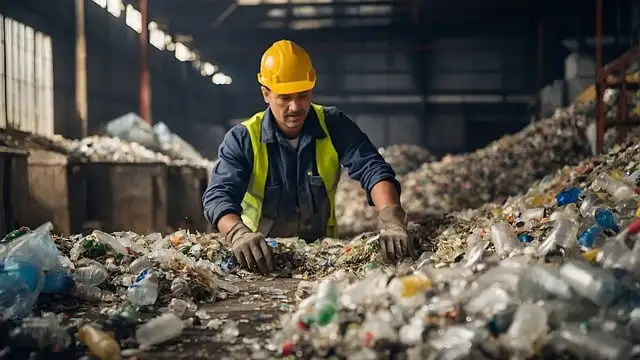Maximizing Financial Benefits Through Strategic Tax Planning in the Waste Management Industry: Leveraging Environmental Grants and Recycling Credits
In today’s environmentally conscious landscape, recycling and waste management companies play a vital role in reducing waste and promoting sustainability. While these companies contribute significantly to environmental efforts, they also face unique tax challenges and opportunities. This guide explores key tax strategies for recycling and waste management companies, offering insights on how to capitalize on available incentives and ensure compliance.
1. Understanding Environmental Grants
A. Types of Environmental Grants
- Federal Grants: The U.S. government provides various federal grants aimed at promoting recycling, waste reduction, and sustainable practices. Notable sources include grants from the Environmental Protection Agency (EPA) and the Department of Energy (DOE).
- State and Local Grants: Many states and municipalities offer grants to support local recycling initiatives, waste management improvements, and green energy projects. Researching and applying for these grants can significantly offset operational costs.
- Private and Nonprofit Grants: Numerous private organizations and nonprofits provide grants for recycling and waste management projects, funding innovative technologies and community recycling programs.
B. Grant Application Process
- Eligibility Criteria: Ensure your company meets the specific eligibility requirements for each grant, which may include being a nonprofit, or small business, or adhering to certain environmental standards.
- Application Documentation: Prepare thorough documentation, including project proposals, budget plans, and environmental impact assessments. Well-organized applications also increase the chances of grant approval.
- Post-Award Compliance: After receiving a grant, maintain accurate records of how the funds are used. Compliance with reporting requirements is essential to avoid penalties and ensure eligibility for future grants.
2. Leveraging Recycling Credits
A. Understanding Recycling Credits
- Federal Recycling Tax Credits: The federal government offers tax credits to businesses that invest in recycling and waste reduction equipment, significantly reducing tax liability.
- State-Specific Recycling Incentives: Many states also provide additional tax credits, rebates, or deductions for businesses involved in recycling. Understanding the specific benefits available in your state is crucial.
- Green Energy Credits: Companies producing energy from waste or investing in renewable energy technologies may qualify for green energy tax credits, enhancing the financial benefits of sustainable practices.
B. Qualifying for Recycling Credits
- Eligible Investments: Recycling credits typically apply to investments in equipment and technologies that enhance recycling processes, reduce waste, or promote sustainability, such as sorting machines and composting equipment.
- Documentation Requirements: Maintain detailed records of all eligible expenses, including purchase invoices and installation costs, to claim recycling credits on your tax return.
- Claiming Credit: Collaborate with a tax professional to ensure all eligible credits are accurately claimed on your federal and state tax returns, significantly reducing your overall tax burden.
3. Tax Deductible Expenses in Waste Management
A. Operational Expenses
- Vehicle and Equipment Depreciation: Waste management companies often invest heavily in vehicles and machinery. Depreciation of these assets is also tax-deductible, and leveraging the right depreciation method can optimize tax savings.
- Fuel and Maintenance Costs: Fueling and maintaining your fleet is another deductible expense. Keep detailed records of all related expenses to ensure accurate deductions.
- Employee Wages and Benefits: Wages, salaries, and benefits paid to employees are tax-deductible, reducing the overall taxable income of your company.
B. Facility Expenses
- Facility Maintenance and Upgrades: Costs associated with maintaining and upgrading recycling and waste management facilities are deductible, including repairs and environmental compliance upgrades.
- Waste Disposal and Processing Fees: Fees paid for disposing of non-recyclable waste or processing recyclables through third-party facilities can also be deducted from taxable income.
4. Green Energy Initiatives and Sustainability Credits
A. Investing in Renewable Energy
- Solar and Wind Power: Installing solar panels or wind turbines at your facilities can qualify your company for federal and state renewable energy tax credits, covering a significant portion of installation costs.
- Energy-Efficient Upgrades: Implementing energy-efficient systems can qualify your company for additional tax deductions under the Energy Policy Act, further reducing operating costs while promoting sustainability.
B. Sustainability Certification
- LEED Certification: If your facility is LEED-certified, you may qualify for additional tax incentives, demonstrating your commitment to sustainability and enhancing your brand reputation.
- Other Certifications: Research local and state programs for other sustainability certifications that may offer tax benefits.
5. Strategic Tax Planning for Recycling and Waste Management Companies
A. Engaging a Tax Professional
- Industry-Specific Expertise: Work with a tax professional specializing in the recycling and waste management industry to gain insights into available credits, deductions, and grants.
- Regular Tax Reviews: Conduct regular tax reviews to ensure your company takes full advantage of available incentives. This proactive approach can uncover new tax savings opportunities.
B. Staying Compliant with Environmental Regulations
- EPA and State Regulations: Compliance with EPA and state environmental regulations is critical. Non-compliance can lead to fines and loss of eligibility for certain tax credits and grants.
- Record-Keeping: Maintain accurate records of all environmental compliance activities, including waste management procedures and energy use, essential for tax reporting and regulatory compliance.
Tax strategies for recycling and waste management companies extend beyond basic deductions. By effectively leveraging environmental grants, recycling credits, and sustainability incentives, companies can enhance their financial performance while contributing to a greener future. Collaborating with a tax professional and staying informed about industry-specific tax opportunities will ensure compliance and maximize tax savings.
You can also post your project on our Marketplace and find the right professional for your needs. Our resource directory also offers valuable links to assist in managing various financial and legal aspects of a business or individual.








